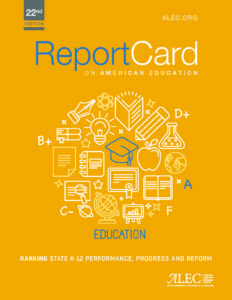
The coronavirus and rigid education policy: Larry Sand
With U.S. schools closed, educators across the land are scrambling to figure out how to provide instruction to millions of students via computers. Granted, an immediate switch to distance learning is not easy for school districts, which by and large have been faithful to the calcified 200 year-old Prussian model of education. You know – a teacher trained in government-approved, specialized schools, standing in front of a class, obedient kids sitting in rows learning the curriculum passed down from on high, etc.
Considering that school districts had no prior experience with distance learning and no time to set up organized programs, some of them have done an admirable job. Others, however, have been resisting change either because of equity issues, general fear and loathing of doing anything different, or old-fashioned turf protection. The culprits come from both management and labor factions.
In Pennsylvania, the legislature and governor have signed off on SB 751, a bill that disallows virtual charter schools from receiving tuition payments for students who enrolled in them after March 13th. These payments will continue to be blocked for the remainder of the shutdown, which very well may be the entire school year.
To read the rest of this column at the California Policy Center, please click here.



